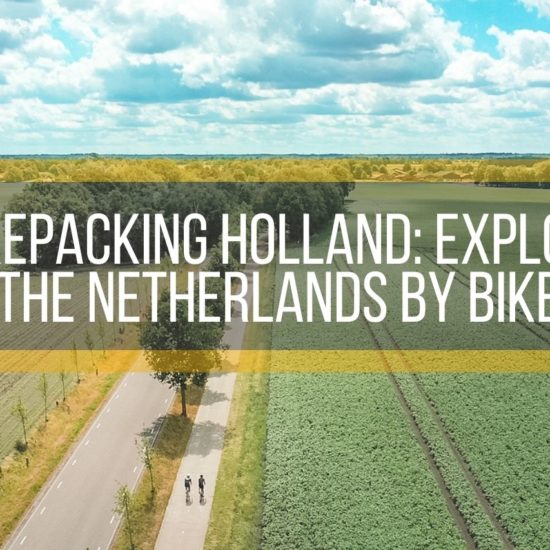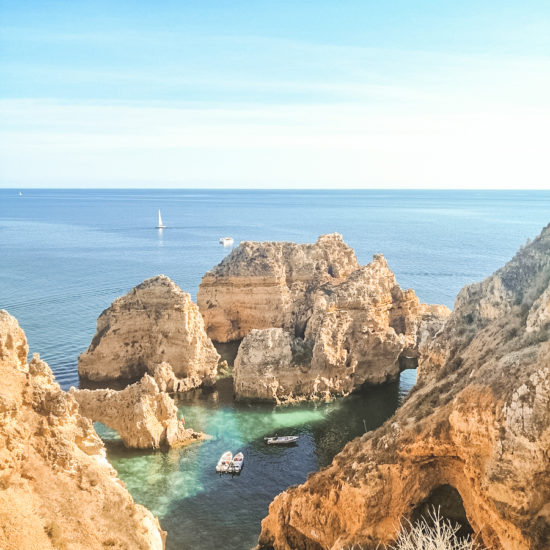34 Ways to Be a Sustainable Traveller
Finally planning that long-awaited backpacking trip but want to be a sustainable traveller? No matter where you travel in the world, there’s ways you can do this. Check out our tips below on how you can do that!
Travelling has truly never been more accessible. And as you’ve probably heard before, it’s one of the most fulfilling things you can do for yourself. Being surrounded by new cultures, meeting new friends, and seeing the things that collectively make this world so beautiful is a gift you can’t put a price tag on. However, one thing we can’t ignore is how the planet pays a price for our curious explorations. Climate change is a very real, and very scary reality we need to be conscious of, especially if we want future generations to enjoy the same beauty we’ve been able to.
And does the travel industry get a lot of flack for its contributions to climate change? Absolutely! But there’s ways to travel better, and do so more sustainably. We’ve rounded up our top tips and tricks you can take on the road with you. Ready to learn all the ways to be a sustainable traveller? Buckle up and read on!
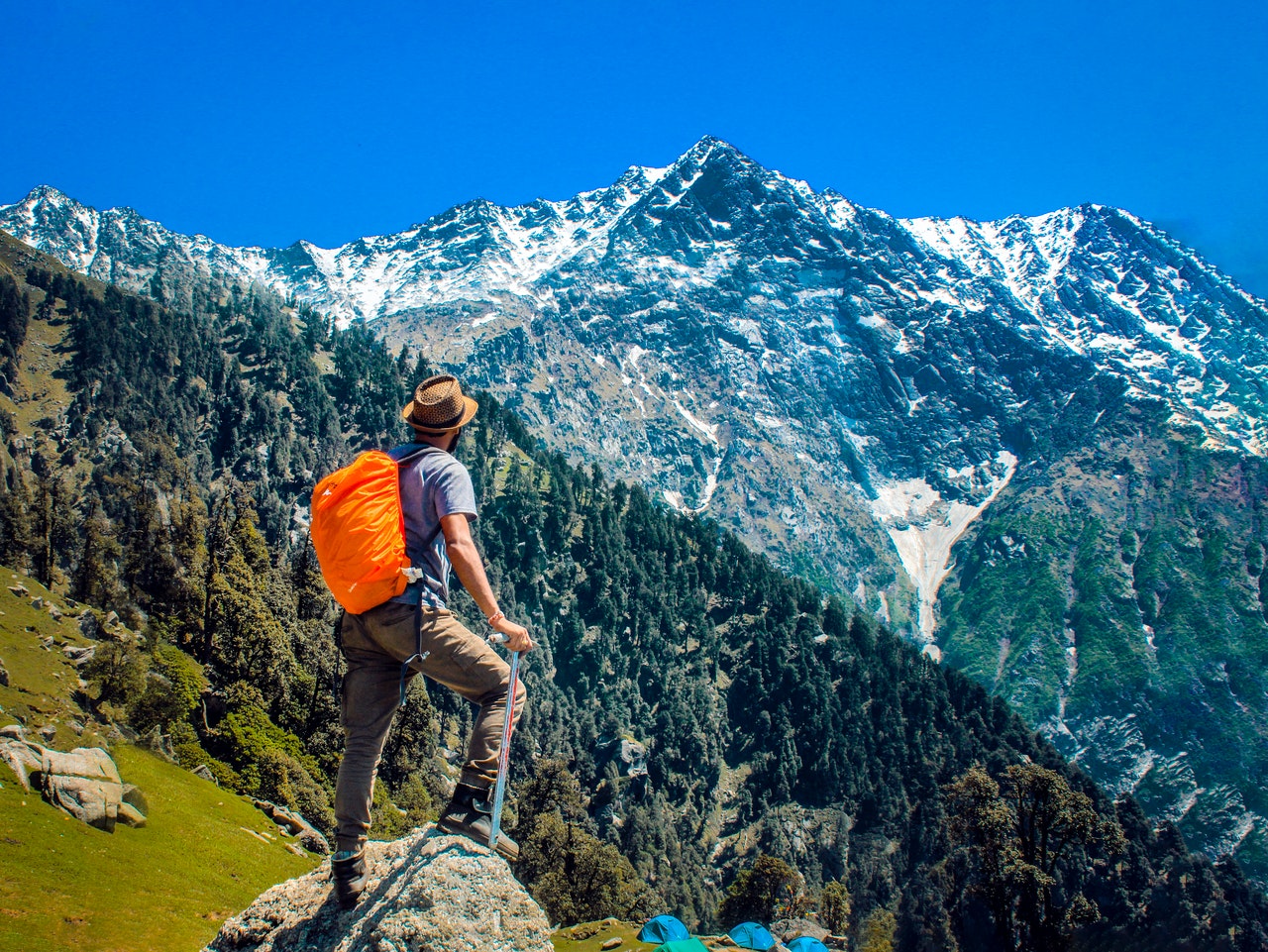
34 Ways to Be a Sustainable Traveller – Photo by DreamLens Production from Pexels
1. Pack a water bottle
Our first tip for being a sustainable traveller is probably common practice among the majority, but it’s always a good reminder. Staying hydrated while on the road is imperative, especially when it comes to avoiding those hangovers! But in all seriousness: plastic bottles are not only an absolute waste, they’re just not aesthetic. And that’s important when you’re snapping shots for Instagram!
2. Pack a cloth bag
The chances of you purchasing things while on the road is pretty high! Even if you’re not after clothing or the like, you’re probably going to buy souvenirs, fresh foods, drinks, etc. So in order to cut down on the plastic bags you might get stuck with, we recommend packing one or two cloth totes in your luggage. Just don’t forget them each day when you venture out!
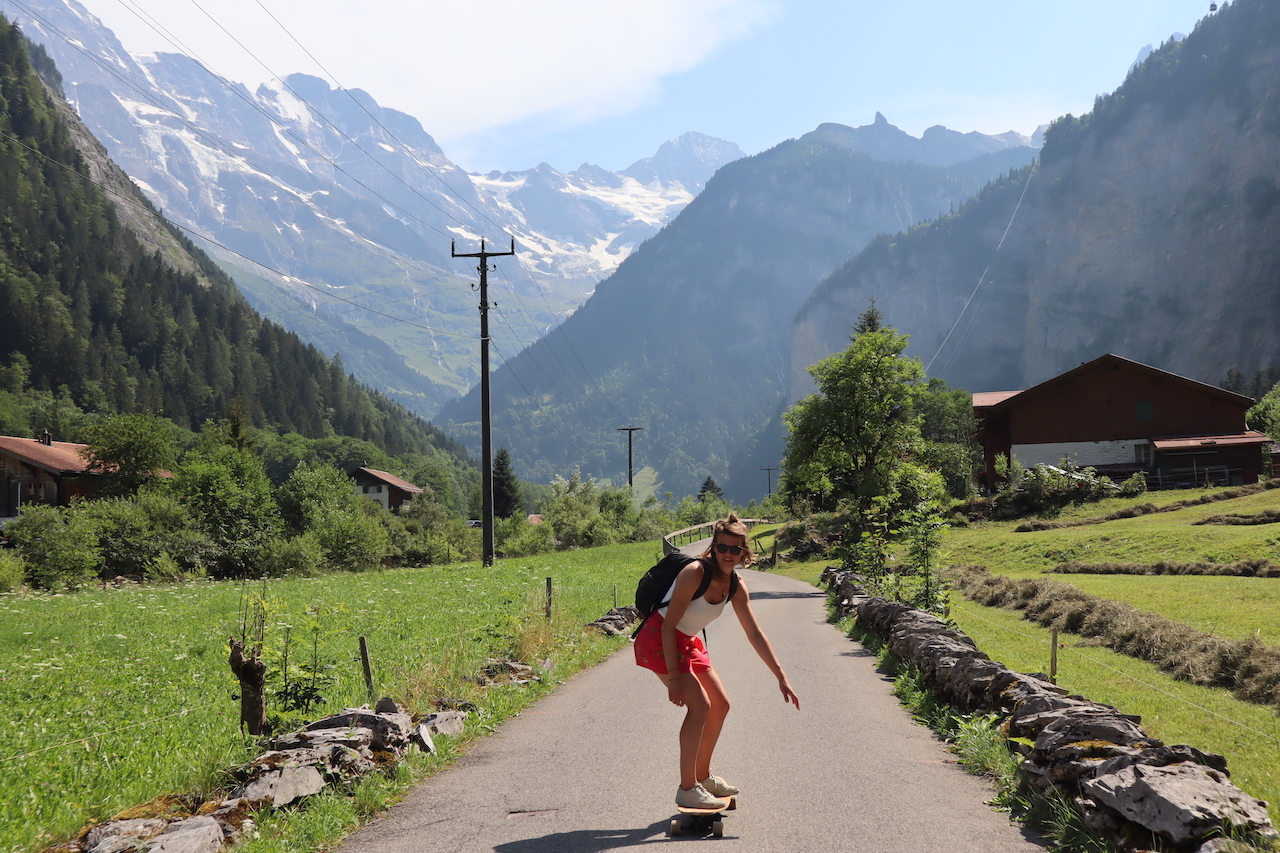
Interlaken, Switzerland
3. Borrow luggage or buy it used
If you’re a seasoned traveller, chances are you already have all the luggage you need. But if this is your first time, or you don’t foresee travelling being something you do often, there’s no need to buy your stuff new! Ask your family and friends if they have anything you can borrow. Alternatively, you can scan your local Facebook Marketplace listings for something used. Not only does this save you a bit of money, it’s a pretty cool way to be a sustainable traveller.
4. Only pack what you need
This might not sound like a way to be a sustainable traveller, but hear us out! You’ve probably taken a road trip or two, and you’ve likely noticed the difference in your petrol consumption if it’s just two people with light luggage, or a whole car load. Planes, busses, and trains are the same. In addition, there’s truly nothing more annoying than getting to the end of your trip and realising your suitcase has tons of items that were never used. Do you really want to lug that all around?! We’ve got lots of great tips here on how to pack light.
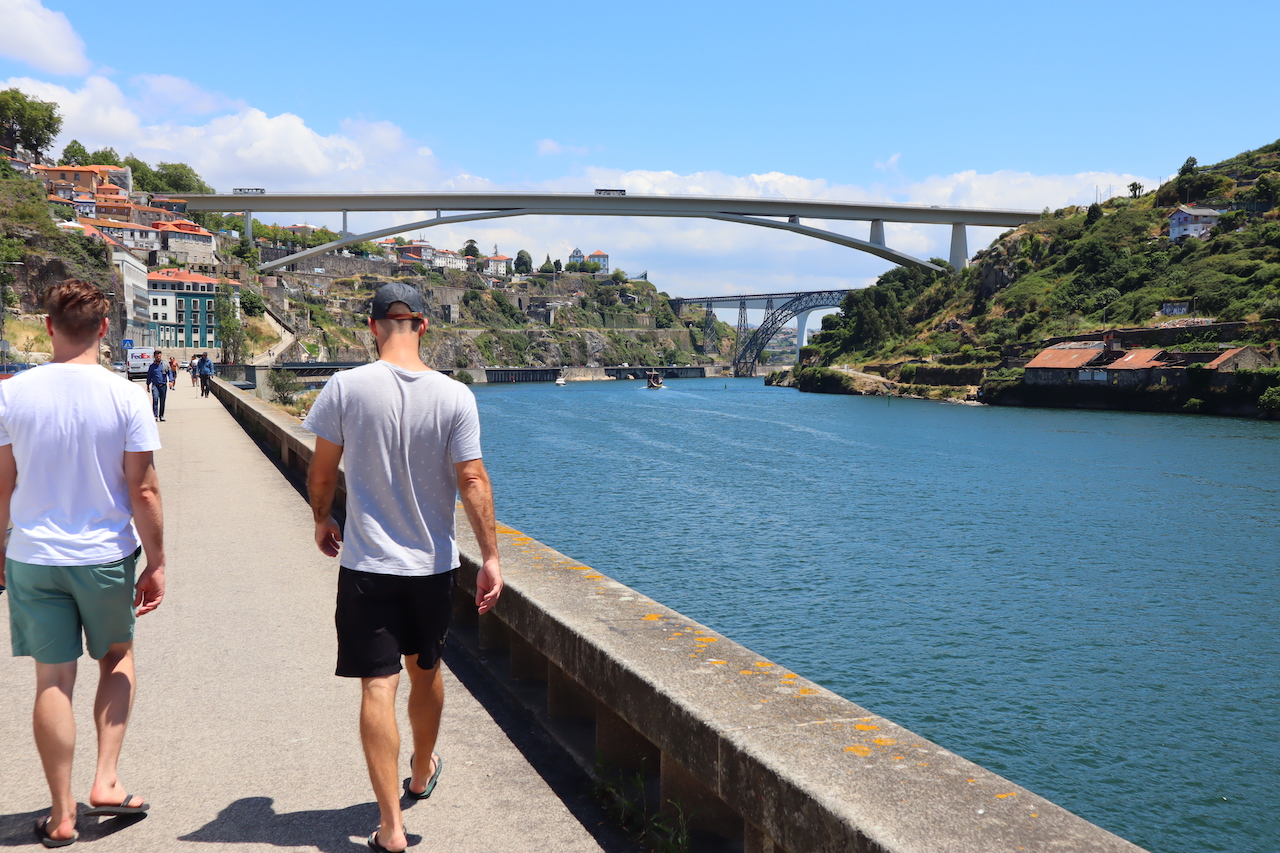
Porto, Portugal
5. Be wary of green-washing
This is a big things to be on the look for. But don’t beat yourself up if you fall for it! Green-washing is a term which refers to the presentation of a product or service being environmentally-friendly or sustainable, but in reality, it isn’t. Often times, companies or services will use earthy-tones or catchy slogans to rope people in. So when you find yourself confronted with this, ask questions or do some research!
6. Take the stairs in your hostel
We understand this isn’t an option for everyone, and that’s okay! Elevators (or lifts) are not killing the planet, but lots of people use them when the stairs are also an option. Think about when it comes time to leave the hostel for the day to explore the city. Rather than wait for the lift, walking down the stairs is likely faster.
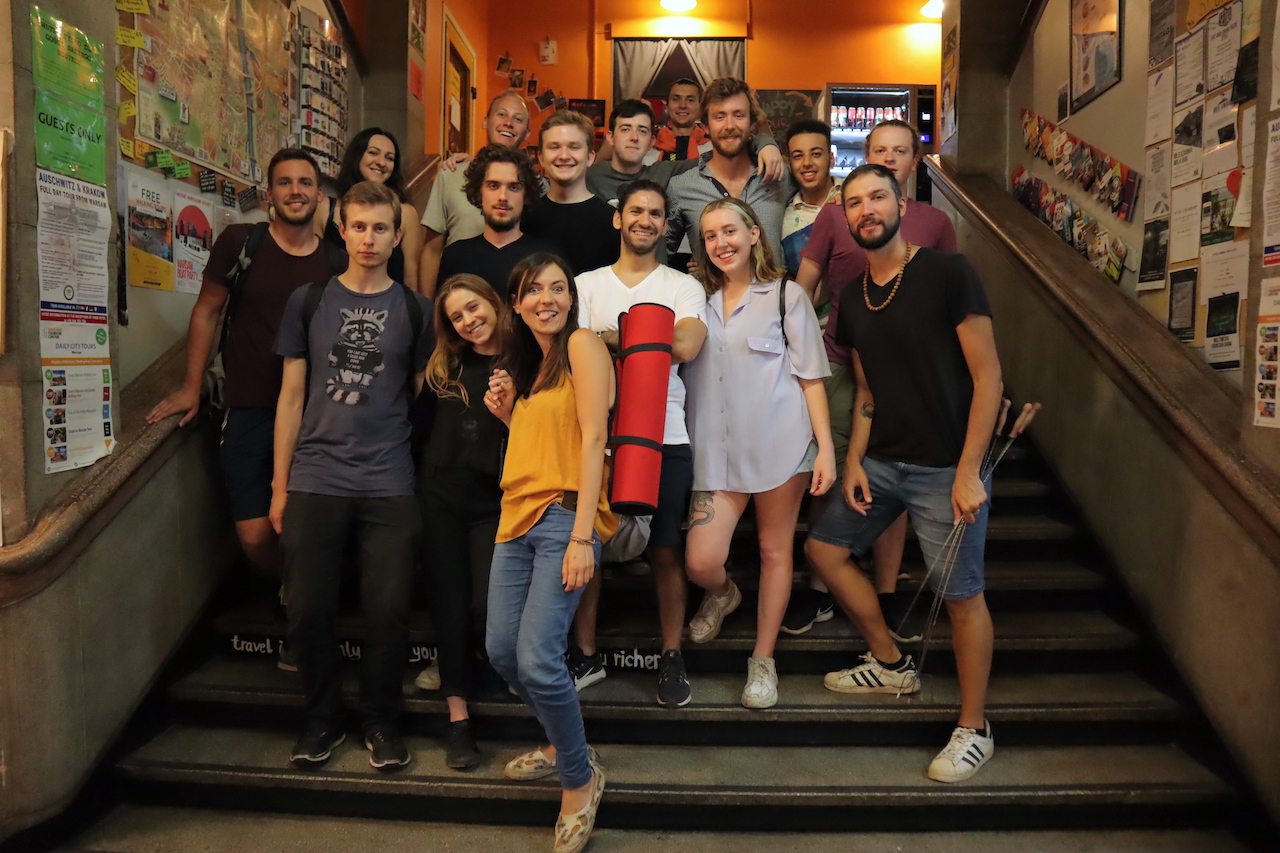
Warsaw, Poland
7. Cook at the hostel kitchen
The vast majority of hostels have fully equipped kitchens, and choosing to use it is just another way you can be sustainable. Head to the local market, pick up some products, and invite some fellow travellers to dine with you! You’ll get a delicious meal and make a few memories while doing it!
8. Visit local markets for local products
If you haven’t romanticised visiting a market in some part of Europe, you’re just straight up lying. Imagine stalls chock full of fresh foods and local products. And locals selling them. Not only are they cheaper and tastier, you’re not buying all that plastic that usually comes with supermarket items. And to top it all off, you’re supporting local farmers. And what could be more sustainable than that?!
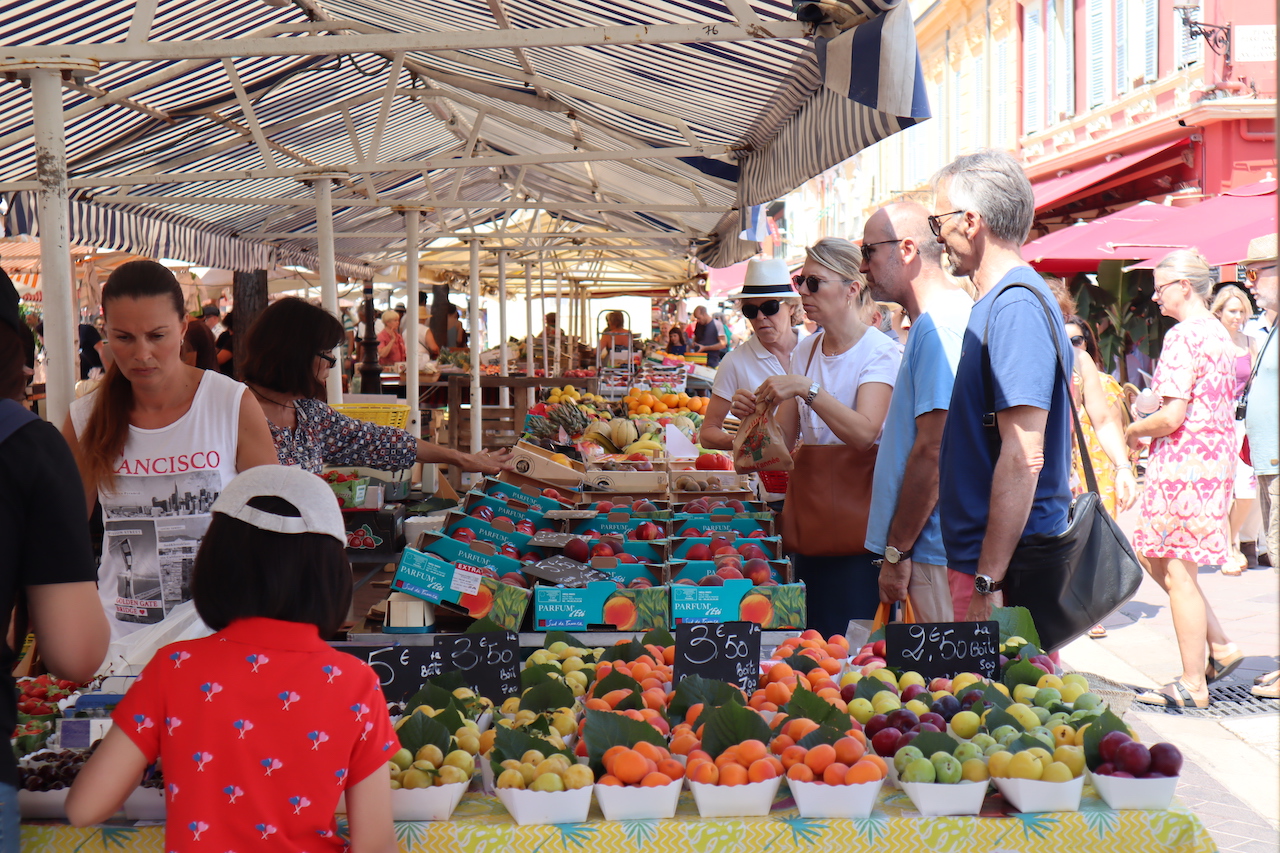
Nice, France
9. Read up on the local recycling rules
Okay, this tip can take a bit of work. But we promise there’s a payoff! Perhaps you’re an avid recycler at home (kudos to you!). But just because one type of plastic is recyclable where you’re from, doesn’t mean the same for all the spots you’ll be visiting on your travels. Our best tip for this is to always ask the folks at reception where to put your empty bottles, or how to get rid of your organic or plastic waste.
10. Pay for a carbon offset on your bus or plane
This one might be tough if you’re on a budget, but it’s something worth considering. While carbon offset certificates for planes can be a little pricey, those for trains or buses cast literally a few cents. You’ll feel hella good opting in for it, too! Also, Famous Hostels has a program where you can literally get rewarded for saving CO2 by opting for a train over other means of transportation. It’s called Eco Wanderer and you can learn all about it by clicking here.
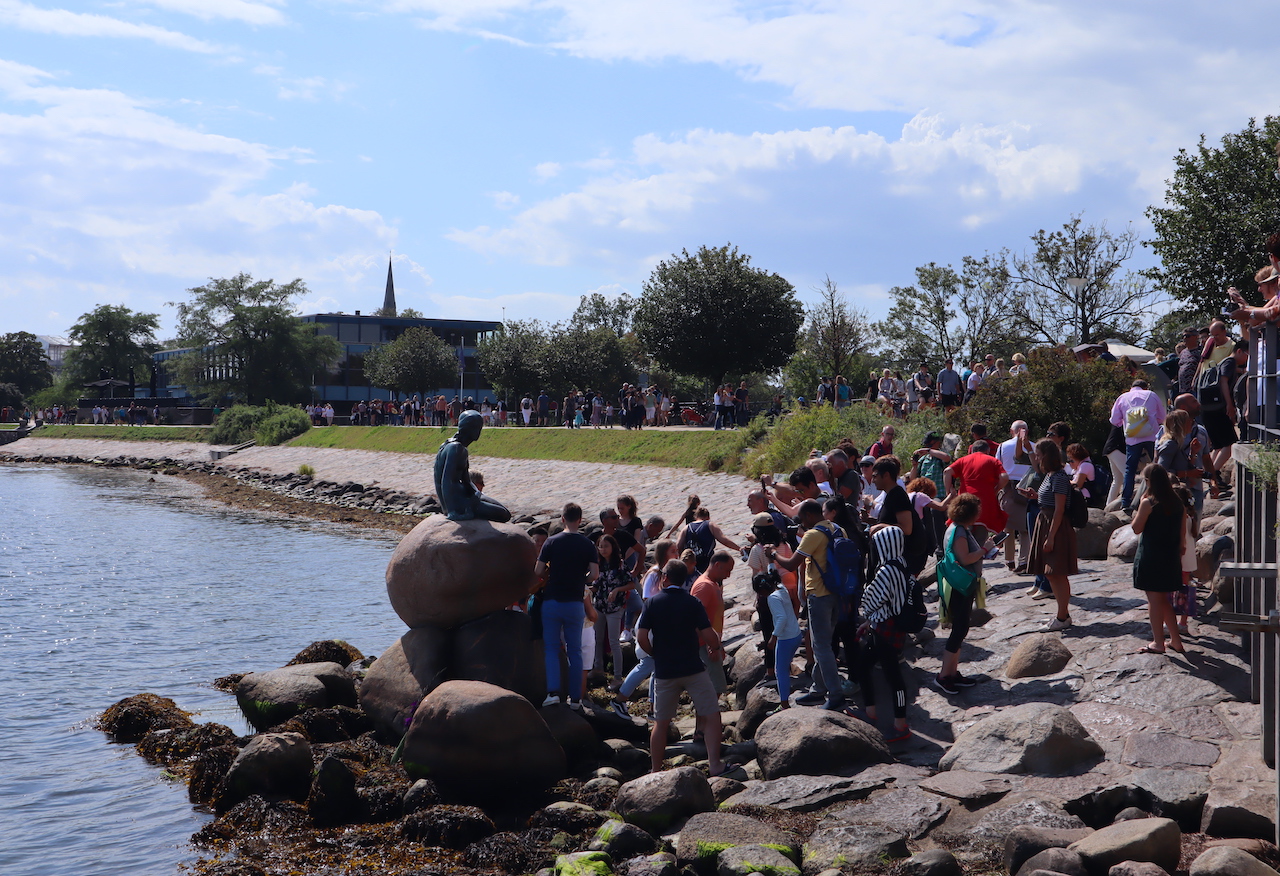
Copenhagen, Denmark
11. Buffet Breakfast? Avoid the items in plastic and only eat what you need
If you’re lucky enough to book a hostel with a beautiful breakfast buffet, you can definitely do so more sustainably. You know all those mini packages of butter, jams, Nutella, etc? Opt for a breakfast exclusive of these items to make your meal that much more eco-friendly. At the end of the day, most of it is single-use plastic anyway, and we all know where that ends up…
In addition, people tend to fill their plates up with more food than is necessary. Sure, maybe you want to eat as much as possible to avoid paying for lunch (money saving tip alert!). But it’s better to take what you know you can eat, and then go back for seconds. Trust us, nobody will judge you for doing that. Why? Because nobody is paying attention to what you have on your plate expect for you.
12. Buy souvenirs at a flea market
Did you promise all your friends and family back home a special gift from your adventures? It’s always a nice gesture to bring something back, but believe us when we say, nobody really wants a plastic figurine from a generic souvenir shop. Head to a local flea market and browse through the smaller trinkets for sale. You can also buy some eatables famous in that area, for example, coffee in Vietnam, gourmet date gift boxes in Dubai, etc. Not only will this gift be unique, but it’s also a cool way of up-cycling something that may have ended up in the trash later on.
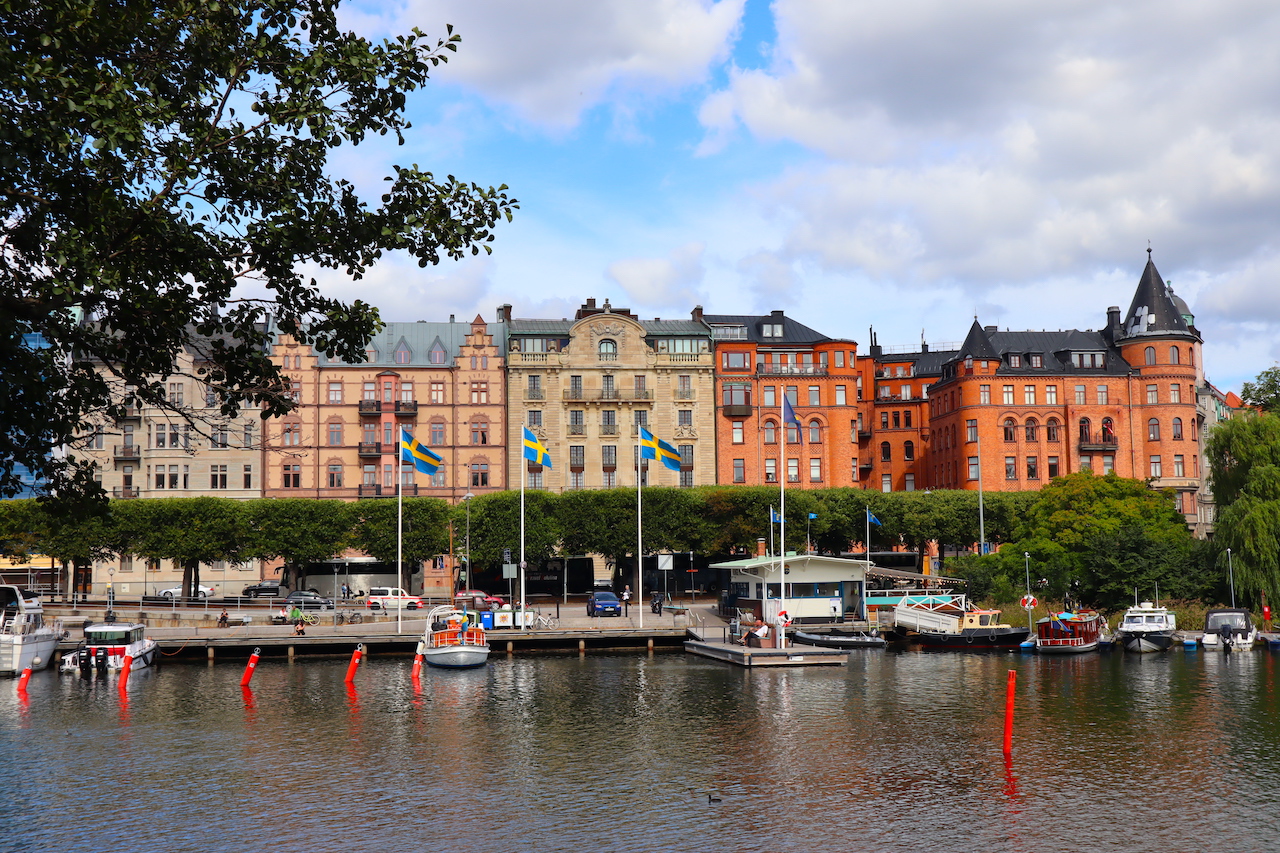
Stockholm, Sweden
13. See some trash at your beach destination? Pick it up!
Headed to a beach destination? How lucky are you! And while you’re probably dreaming up turquoise coloured waters, we want to be real with you: you’re going to see some trash either on the shores or in the water. Rather than let it float around, pick up some trash and put it in the bin.
14. Ditch the e-scooters and walk / take a bike
We get how alluring it is to hop on an e-scooter and explore the city, but ask almost any local and they’ll tell you what a pain they actually are. Sure, they’re marketed as a convenient and green way to get around, but is that really the truth? You’re much better off getting around on your own two feet, or taking a bike. That’s how the locals really get around.
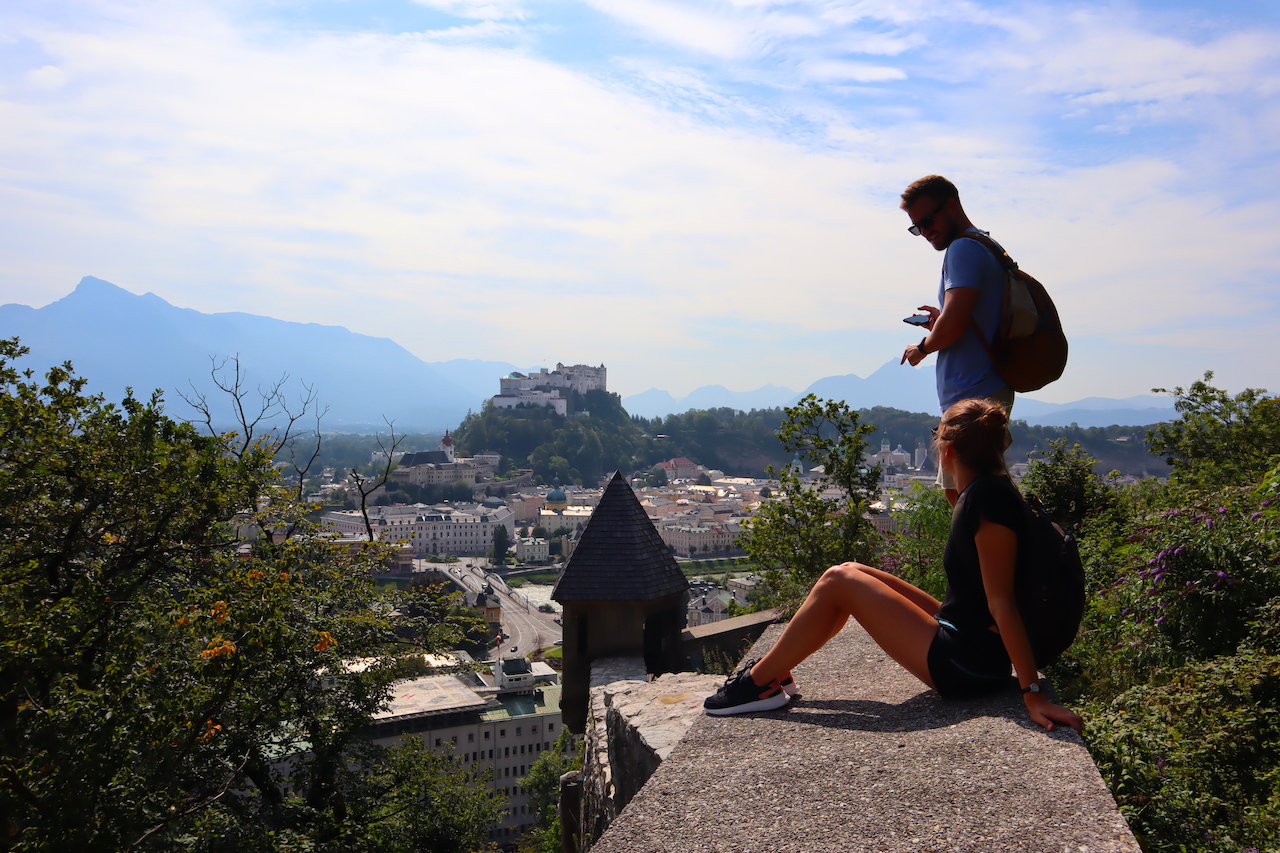
Salzburg, Austria
15. Absolutely have to take an Uber? Try to carpool
In bigger cities like Paris or Berlin, you’ll sometimes need to opt for an Uber. And that’s okay! But if you’re at the hostel and going to some club in an obscure part of town when public transit is no longer an option, it won’t hurt to ask around and see if anyone else is heading the same way.
16. Bring silicone bottles for toiletries to refill
Before you even leave for your trip, this is a tip worth considering. We know how easy it is to drop by your local supermarket or drugstore and pick up a few tiny travel sized toiletries. But not only is it a total waste of money, it’s also wasteful for the environment. We encourage you to pick up a few silicone bottles and fill them with your favourite shampoos, conditioners, soaps….whatever you’ll need!
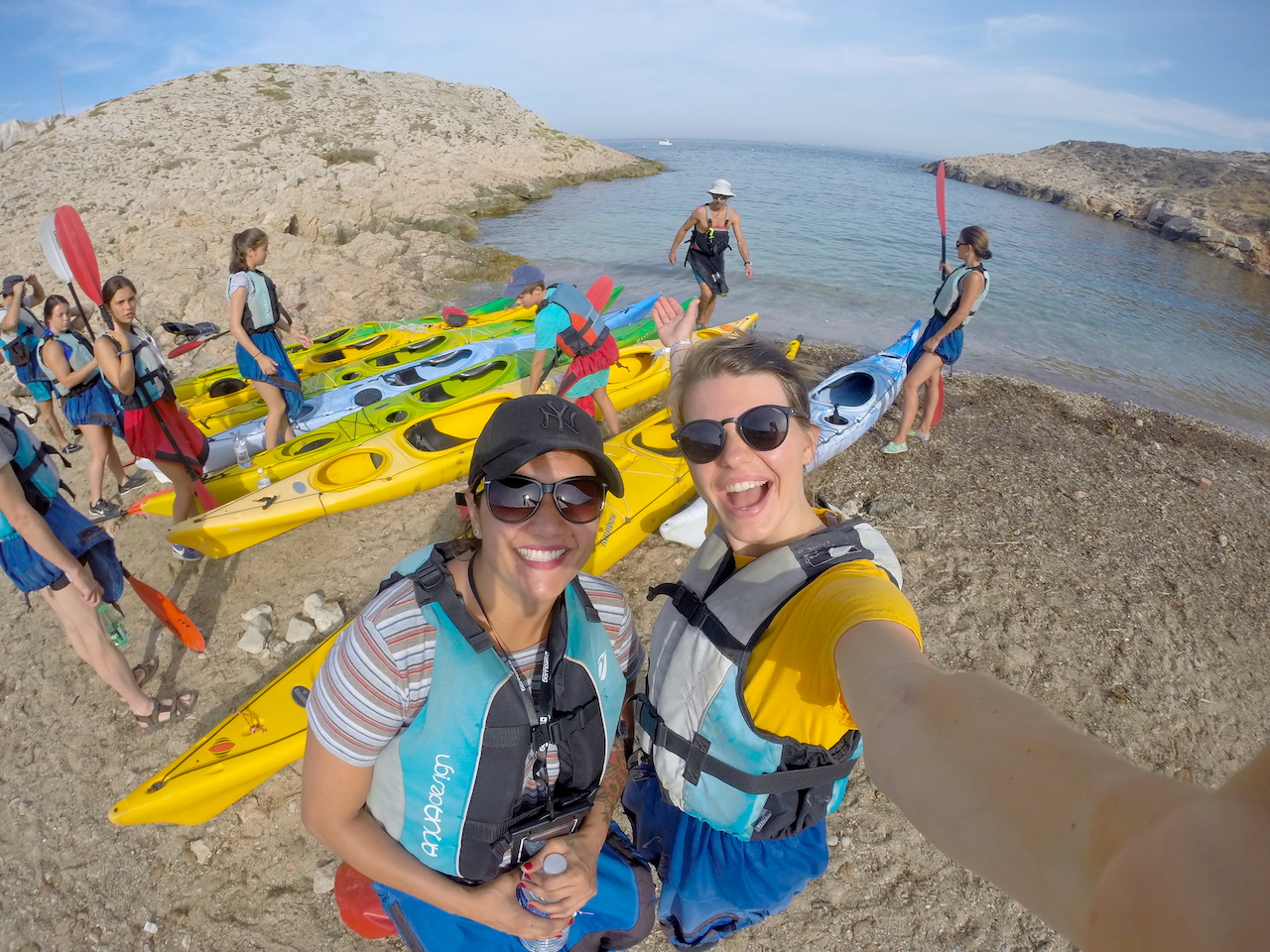
Marseille, France
17. Eat vegan on your travels
If you’re already vegetarian or vegan, you can totally skip this one. But if you’re not, this is a tip for you. While many countries in Europe have fairly meat-heavy diets, there’s still ways to avoid it. We really can’t stress how fresh the fruits and vegetables are in Europe, so pick a few days a week while backpacking and go veggie!
18. Think before you throw (up-cycle trash)
Did you buy a plastic water bottle in a supermarket? Or perhaps you went to a market and had to take your items in a plastic bag. Before you throw it in a bin, think of ways it can be repurposed. Bottles caps, beer labels, and coasters can all make for cool keepsakes or souvenirs.
Alternatively, maybe you have some things in your luggage you’re looking to ditch because you’ve replaced them with newer items or you’re returning home. Ask the hostel if they have a ‘free items’ box!
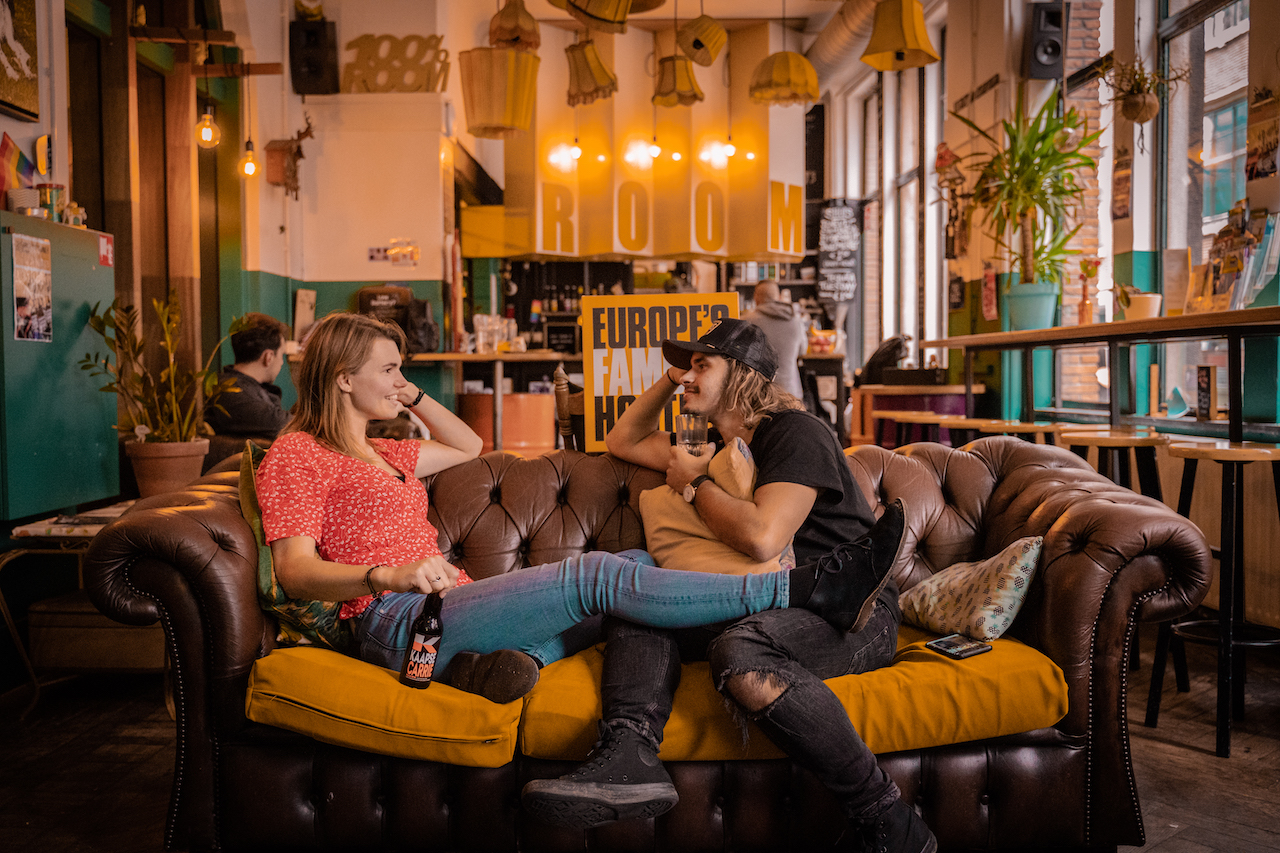
Rotterdam, the Netherlands
19. Visit non-tourist hot spot places
While we don’t blame you for wanting to see the typical tourist spots. But we encourage you to think of spots you can visit that don’t come with the large crowds of tourists. Over-tourism is a problem for locals, and it’s also a problem for the environment. Venice has experienced this problem to the point that they’re implementing ‘city entrance’ fees to deter tourism. So before you plan your itinerary, consider spots that don’t see so many tourists.
20. Don’t print your tickets
Almost everywhere uses digital tickets now, but sometimes people revert to printed ones for nostalgic purposes. But ask yourself: are you really going to carry around a stack of loose papers? Are they really going to stay in great condition either? The answer to both is likely no. So save a tree, and get all your tickets digitally!

Paris, France
21. Use sunscreen without oxybenzone
This point is especially relevant if you’re heading to any beach destinations. Studies have shown that oxybenzone contributes to the bleaching of corals, and is harmful to others forms of marine life. Rather than leave the water in worse condition than you found it, look for a oxzbenzone-free sunscreen to be a more sustainable traveller!
22. Staying at a hostel for a few days? Skip the daily room service
You’ve probably never thought of this before, but that daily room service you get is also contributing to climate change. If you’re having your towels and bedsheets replaced daily, that means they’re being washed and dried daily. By skipping this step, you’re helping save water, reducing the amount of micro-plastics in the water, and saving on energy consumption. It’s an easy step to take!

Lille, France
23. Need to fly? Take a direct flight!
We know that sometimes direct flights just aren’t an option, especially if you’re going from a metropolis to a tiny village. But when you find yourself searching for flights, you’ll notice that flights with stopovers are often cheaper, even when there’s a direct option. Sure, it might be tempting to book, especially if time isn’t a factor, but what about the environmental factors? Studies have shown that direct flights save about 100kg of carbon dioxide a year. To put that in perspective, that’s about the same as running your refrigerator for a WHOLE year!
24. Travel in the off-season
This is a two for one tip, and we call it that because not only are you doing better for the environment, but you’re also doing better by your wallet. Prices of everything from transportation to accommodation are cheaper, so it won’t be so hard on your wallet. But how is it better for the environment? It alleviates the strain over-tourism, or tourism in general, can put on a place. Think of all the produced waste, energy needs, and water consumption that happens in high season. That’s why we recommend travelling in the off-season for ways to be a more sustainable traveller!

Valencia, Spain
25. Need to rent a car? Opt for petrol over diesel, an electric, or a hybrid
Thanks to Europe being so well connected, the chances of renting needing to rent a car to get anywhere are pretty low, but it’s not zero! Some pretty fantastic spots all across the continent are only reachable via car, so if you find yourself in need of one, we strongly recommend trying to find a hybrid, or an electric. But if both are out of your price point, petrol is better for the planet than diesel.
26. Fancy a restaurant snack? Check out food-waste apps like Too Good To Go
Have you ever wondered what happens to all the excess food at bakeries, or cafes? What about sushi restaurants? As with nearly everything in life, there’s an app for that, and it’s called Too Good to Go. Participating spots can list whatever food items they have, which you can purchase for a fraction of the price! Supermarkets also include goodie bags, so it’s perfect if you even want to make a meal. This helps reduce the amount of overall food waste, and we love this initiative!
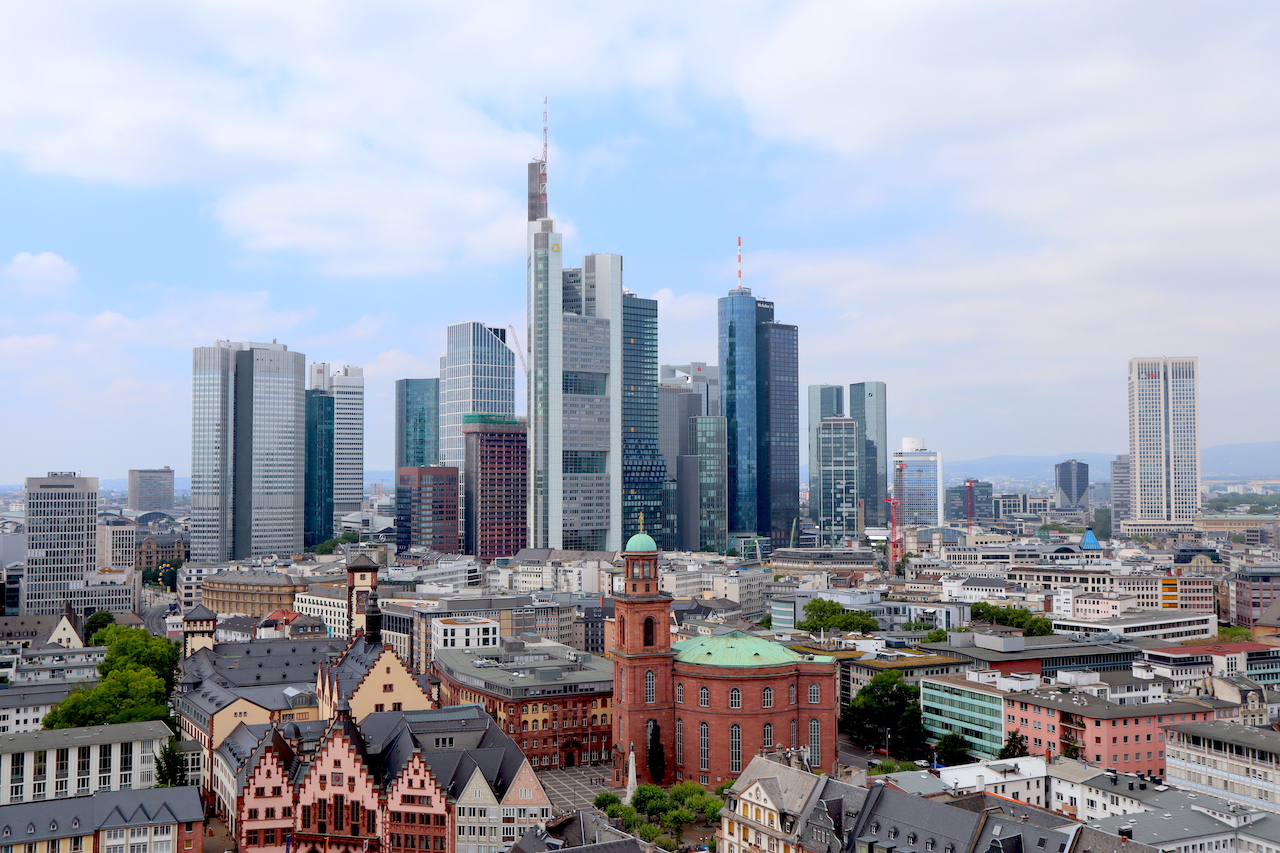
Frankfurt, Germany
27. Buy souvenirs made from locals
Souvenirs are what you make of them; they can be silly little trinkets, or thoughtfully purchased items. It’s whatever you fancy! But in most cases, the souvenirs you’ll find in the generic gift shops aren’t even produced in the country, which means they likely travelled an unnecessary distance to get there. But if you seek out locally made products, not only are you saving on the CO2, you’re also contributing to the local economy and are likely helping a smaller business. That’s got to be a nice feeling!
28. Support local tourism groups and guides
Just like the above tip, we think seeking out local tourism groups and agencies is another great way for one to be a sustainable traveller. Nobody knows the destination you’re in quite like a local, and in addition, isn’t it better to pour your cash into the local economy rather than somewhere far removed from the destination? Plus, local tourism groups and guides can give you so much more in terms of insider tips!
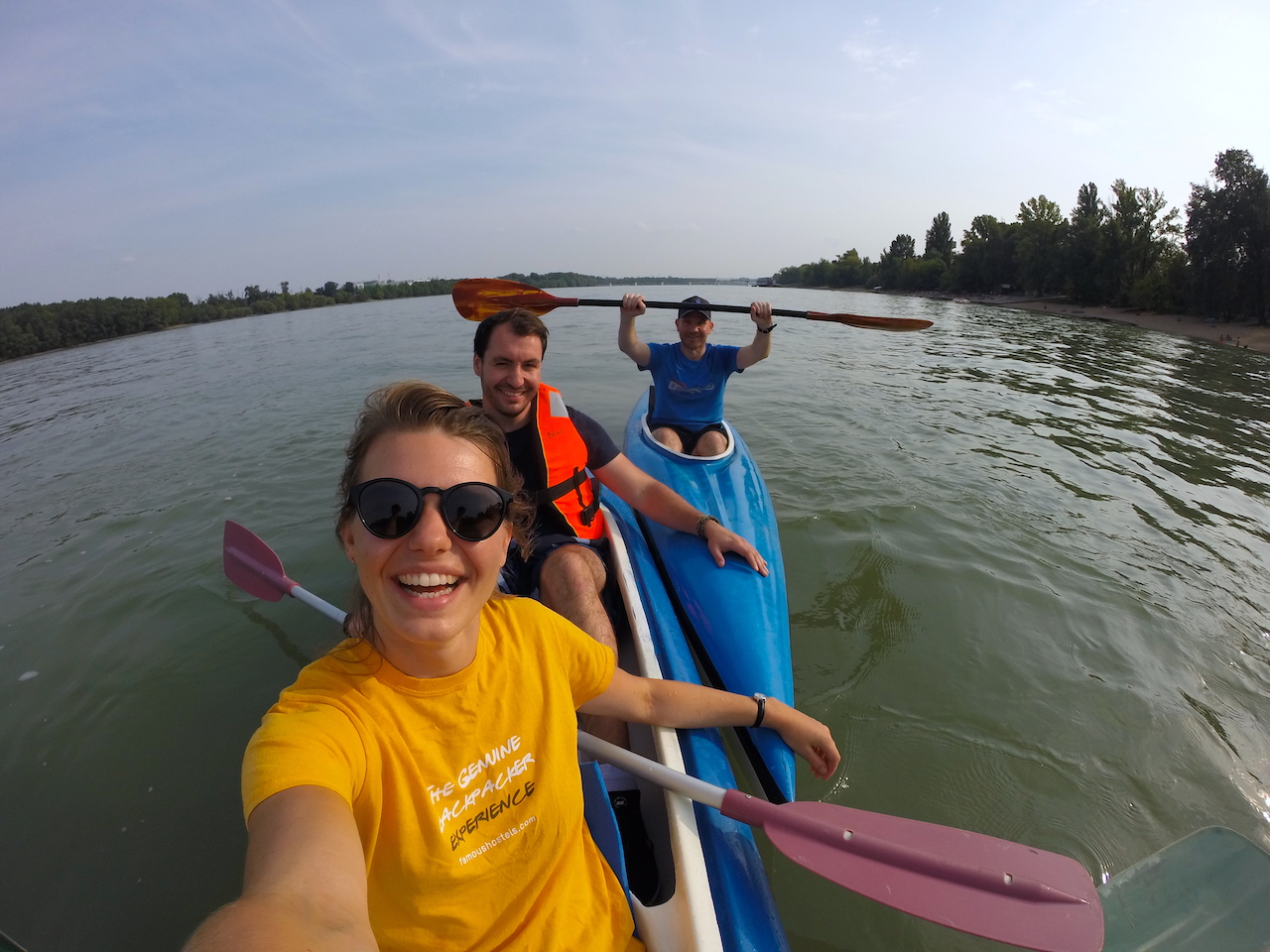
Budapest, Hungary
29. Book with family owned hostels rather than chains
You know the beauty of supporting small business? When you spend money with them, you’re actually supporting a family. It’s a hell of a nice feeling knowing your cash is going to support a child attending sports lessons rather than fattening up the wallet of an overpaid CEO in another part of the world. And when you book with family owned hostels, you’re also helping that business sustain itself in a competitive market, and keeping some locals employed. It’s really a win win!
30. We know it looks cute, but don’t feed the local animals
We’re sure you’ve romanticised about heading to a park somewhere in Europe and throwing the birds or ducks a few scraps of your sandwich. And maybe it feels good to do so, but we strongly advise against it. We don’t want our furry friends to go hungry, but we also don’t want to mess up their migration patterns. When animals are constantly offered food from humans, they get into the habit of relying on that food year round. And when the tourists go, so does that flow of snacks. And this becomes specifically problematic when winter rolls around. So in order to not play mess around with natural migration patterns, please refrain from throwing them any scraps!

Stockholm, Sweden
31. Backpacking? Spend more time in destinations rather than a new one every few days
If you’re coming from a large country like Australia, USA, Brazil, Canada, etc, it can be tempting to cram as many destinations into your itinerary as possible. But is this really the most sustainable way to travel? Hardly! All this movement means more CO2 pollution, and it doesn’t really give one the chance to truly take in the culture. We recommend spending at least 3-5 days in a destination, depending on the time you have to play with and where you’re choosing to visit. Cities like London and Berlin can easily eat up 5 days, so really take your time to reflect on what’s important for you and where you really want to see! At the end of the day, Europe isn’t going anywhere so any of the spots you miss can be visited on your next trip.
32. Don’t participate in tourism activities where animals may be harmed
We’re sure you’ve seen tons of photos of folks riding elephants in Thailand, or couples taking romantic horse-drawn carriage rides through Vienna. While they might look nice on Instagram, they’re not nice moments for the animals. Horses are often overworked and the stress of being unnaturally placed in a city also contributes to its poor wellbeing. Please consider these points wherever you travel, and be kind to the animals!
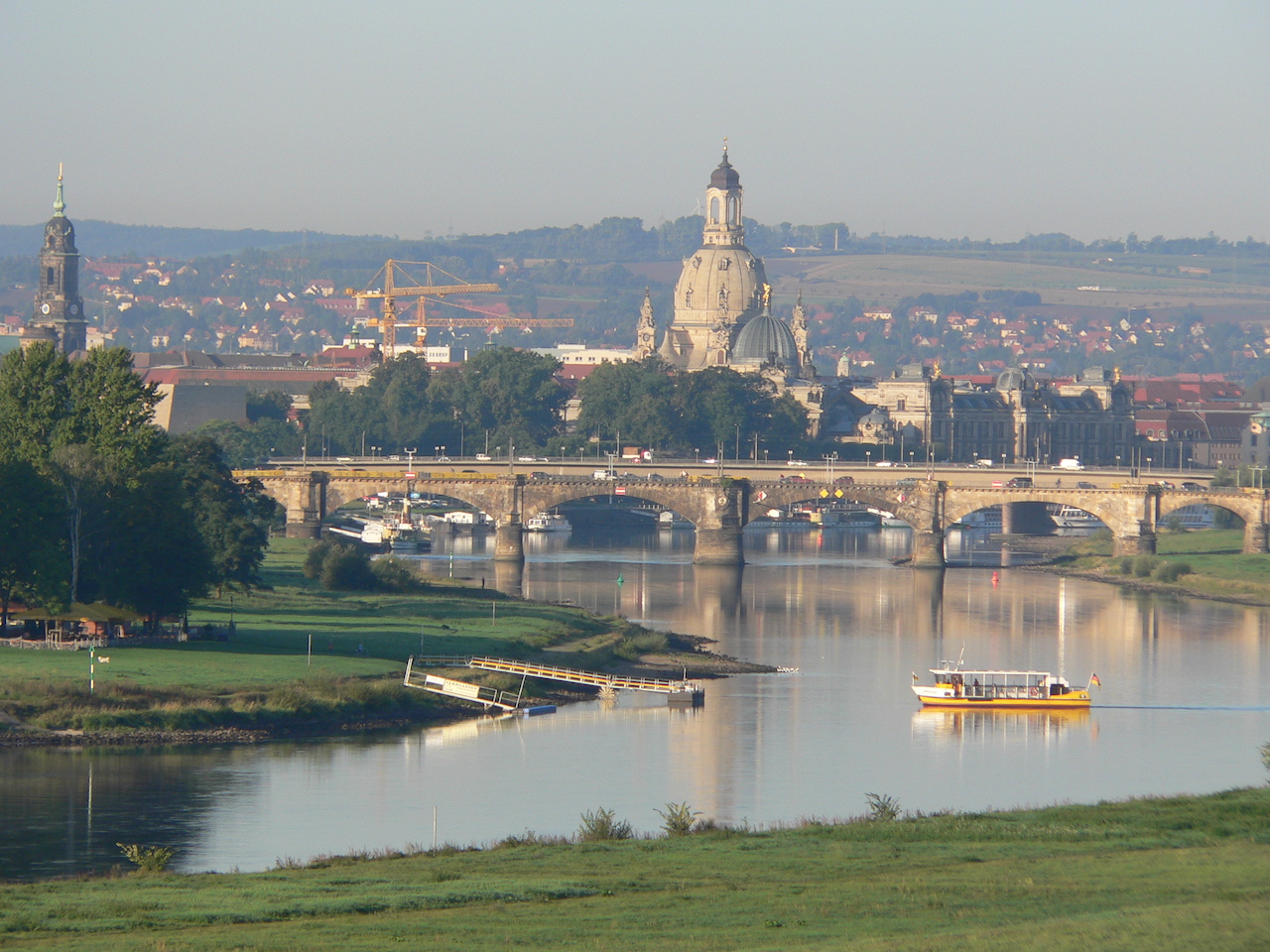
Dresden. Germany
33. Taking a bus or train? Consider an overnighter!
Okay, not only is this tip great for sustainability, it’s also great for your wallet. How many times have you been on a bus, only to end up delayed due to a traffic jam? Sadly, while you idle in this mess, your bus is omitting unnecessary CO2. So rather than risk this situation, we recommend taking an overnight bus or train. Trains in Europe are quickly reintroducing night routes, so there’s even options to book a cabin to sleep in if you don’t fancy curling up in your seat. Not only do you get to your destination while you catch some shut eye, you also save money on accommodation! Seems like a no-brainer, right?!
34. Need new clothes? Thrift or borrow them!
And lastly in our very long list of ways to be a sustainable traveller, let’s talk clothes! We get it; you wanna look fly in your photos. But have you considered other ways to acquire these looks without purchasing a whole new wardrobe? Ask around your friend circle to see if there’s anything you could borrow. And as a thank you, you can pick them up a nice souvenir from your travels. Alternatively, head to your local thrift shop or your favourite used clothing apps and see what you can snatch up!
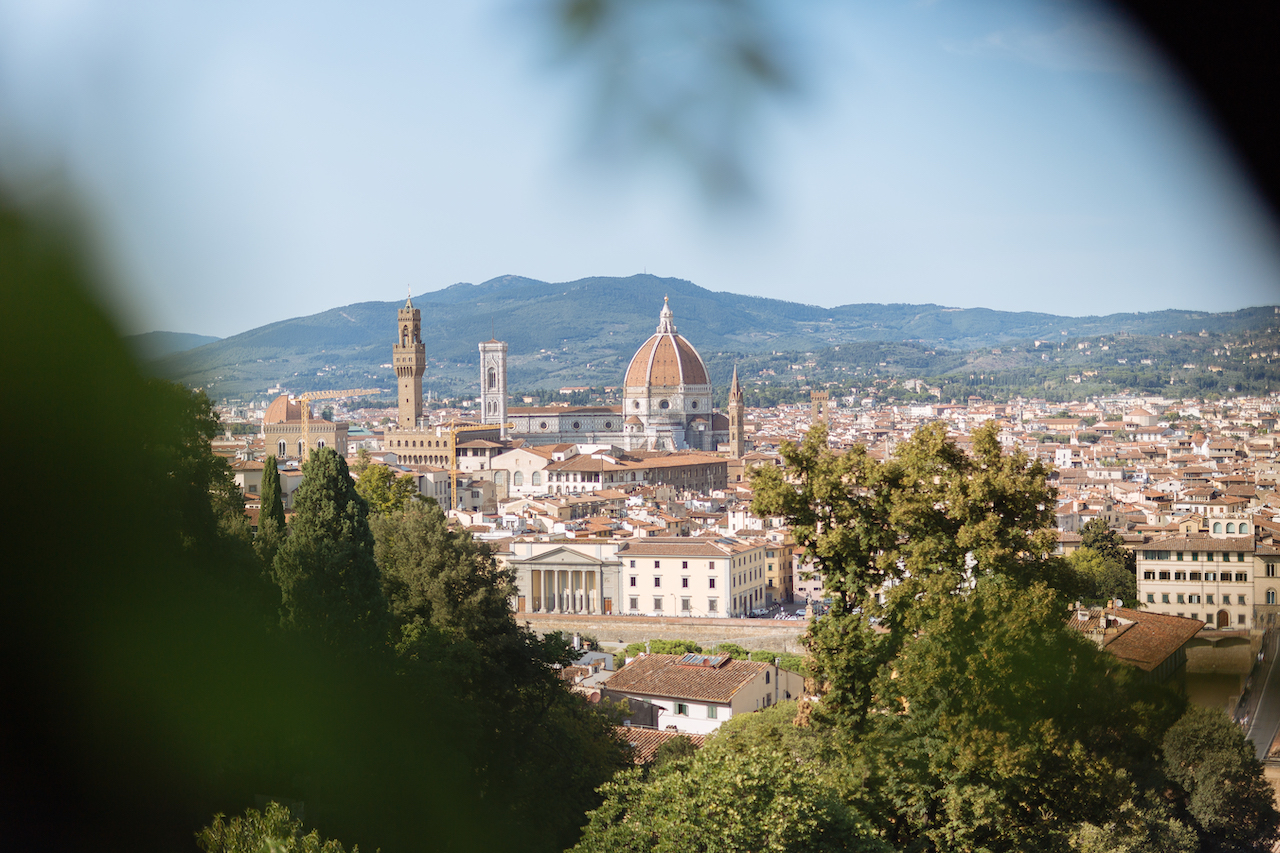
Florence, Italy
Where to Stay in Europe
Europe’s Famous Hostels is a network of hostels located across Europe and Israel. All locations within the network maintain a high customer rating, and are fully equipped with everything you need. Whether you’re travelling solo, with friends, as a couple, or a family, our locations offer a variety of rooms to make your stay as enjoyable as possible.
And that’s not all. All our hostels are famous for their facilities and social atmospheres: from Happy Hours, Free Walking Tours, to saunas, and more, you’ll love being our guest. From the highlands of Scotland to the Dead Sea in Israel, stay famous when you stay with Europe’s Famous Hostels.
34 Ways to Be a Sustainable Traveller
So, what do you think of our tips on being a sustainable traveller? How many of them do you already practice? In any case, we hope you’ve found a few solid tips to keep in your back pocket for your next great adventure! If you’re looking for more information to help you plan your Spanish holiday, click here. Our blog ranges from city guides, to food guides, travel tips, and more, all in an effort to inspire your next getaway. For all the latest news at Famous Hostels, follow us or subscribe on Instagram, TikTok, Facebook, Pinterest, and Youtube.




